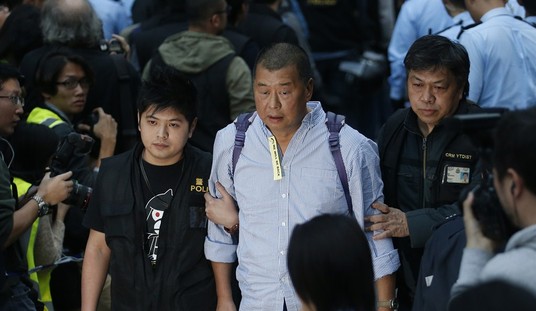When confirmed as the next Secretary of Defense, as he will likely be, Aston Carter will have his hands full as he seeks to steward America’s national defense strategy. Among his hardest challenges will likely be the situation the United States and its coalition partners face in Syria as they seek to contain and eventually destroy the Islamic State.
President Barack Obama’s present strategy for dealing with ISIS in Syria is essentially an embrace of the path of least political resistance, despite its dubious efficacy.
America will seek to identify reliable rebel groups inside Syria with the capacity to fight ISIS, but who are relatively secular and unlikely to turn on the West once their mission is complete. Following that vetting process, those rebels will be extricated from Syria and transported to a variety of third-party countries in the region where they will be trained and equipped. Following that, they will be reintroduced into the Syrian theater to execute their mission. The Pentagon estimates that it could take up to a year from the start of this process before the estimated 15,000 fighters necessary to smash the Islamic State (though only 5,000 will be introduced at the outset of the campaign) are assembled.
In spite of the fact that Congress consented to this strategy over two months ago, the process has not yet even begun.
“According to Pentagon and Congressional sources, training of opposition fighters won’t begin until March or April at the earliest, and it will take a total of eight or nine months to train an initial small group of fighters,” The Daily Beast reported in late November.
Even when the train-and-equip program gets underway in earnest, substantial roadblocks lie ahead, and bipartisan members of Congress warn they could imperil the entire American strategy against ISIS.
Moderate opposition fighters in Syria are already deeply frustrated with the United States over a lack of communication, coordination, and follow-through. Members of the Syrian moderate opposition want to coordinate on airstrikes, but say they have been rebuffed. They want to pass on valuable intelligence about ISIS positions, and it’s ignored. They’re promised supplies, and they wait for months.
…
As the recruitment process begins, the question of motivation could also prove to be a hurdle. The moderate Syrian opposition emerged to fight Syrian President Bashar al-Assad’s regime, and they may balk at recruiting fighters to leave Syria and train for what could ultimately be an anti-ISIS campaign, with Assad benefiting from chaos in the rebel ranks.
Meanwhile, the West is rapidly losing Syrian opposition candidates who might be worth vetting in the first place. According to a report in The Washington Post, al-Qaeda affiliated groups in Syria are expanding their control of territory inside the country. At the same time, moderate opposition forces are collapsing.
Since routing two of the biggest Western-backed rebel movements last month from the province of Idlib, Jabhat al-Nusra has been steadily consolidating its position as the single most powerful military force in northwestern Syria.
The group has overrun towns and villages throughout the province, secured supply routes into neighboring Turkey and potentially paved the way for the establishment of an Islamic “emirate” — a competing entity to the “caliphate” declared last summer by the Islamic State in northeastern Syria and western Iraq.
The al-Qaeda affiliate’s expanding footprint risks further complicating the U.S.-led effort to contain and destroy the far more powerful Islamic State, a fierce rival to Jabhat al-Nusra that ejected the al-Qaeda loyalists from its territories last summer.
The Post revealed that American officials have not even met with Syrian opposition leaders, an event which would mark the start of the vetting process for candidate rebel groups. Still more disturbing, no one knows quite what that vetting process will look like.
While the West dithers, the Islamic State and al-Qaeda affiliates solidify their control of Syrian territory and prepare to resist the forthcoming counteroffensive from Western-backed rebels. In all likelihood, the anti-extremist campaign in Syria will be a task left to America’s next president to tackle. Whoever the next president is, he or she will be perfectly justified in blaming the Obama administration for running America’s national security policy in Syria into a ditch.







Join the conversation as a VIP Member